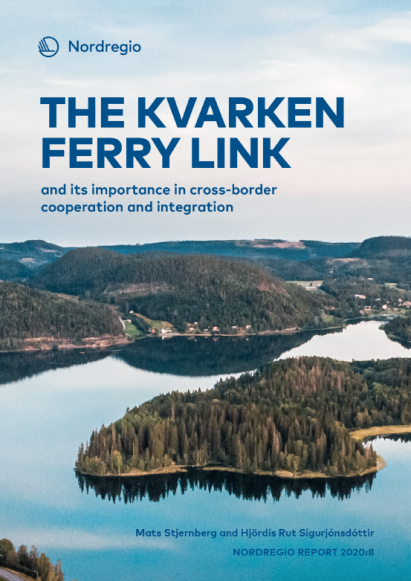This report shows that a reliable transport link has been central to maintaining and developing cross-border relations in the Kvarken region. Sea traffic has been the lifeline enabling cross-border interactions and exchanges throughout the centuries, and cross-border cooperation has remained largely dependent on the ferry connection until this day.
Over the decades, the depth and breadth of cooperation between the Finnish and Swedish sides of Kvarken have followed changes in the ferry connection. From the 1970s onwards, passenger traffic over the Kvarken Strait increased significantly, and cross-border cooperation became more established and varied. However, the abolishment of tax-free sales on the Kvarken ferry in 1999 was, in many ways, a turning point that led to a significant decline in traffic and had a severe, negative effect on cross-border relations. The first decade of the 21st century has been described as a low point in cross-border cooperation across Kvarken, because the unstable and limited ferry connection between Vaasa and Umeå made it difficult to maintain and develop the economic, social, and cultural ties that had been established during previous decades.
Following this period of decline, joint actions were taken by actors on the Finnish and Swedish sides of the Kvarken region to reinstate a new, stable ferry connection in 2012, highlighting the importance of this traffic link to both parties. The arguments for reinstating the ferry link focused not only on improving connectivity, but on providing a new basis for re-strengthening cross-border relations and developing stronger synergies across the region, which were considered to depend on a reliable traffic link allowing frequent travel. The reinstated ferry connection has had numerous direct and indirect effects on both sides of the Kvarken Strait, such as cooperation within research, education, healthcare, and tourism, as well as new forms of cooperation between businesses, all of which suggest that cross-border cooperation has strengthened and expanded during the most recent decade. Based on this study, central actors involved in cross-border cooperation in the Kvarken region generally feel that newly emerged cooperation initiatives have also led to a stronger belief in the potential benefits and synergies that can be achieved by working together, which has, in turn, led to additional spin-offs and opportunities. While there are remaining challenges and barriers to further integrating the Kvarken region, in a long-term perspective, cross-border cooperation in many areas appear to be on a more solid foundation than in the past.






